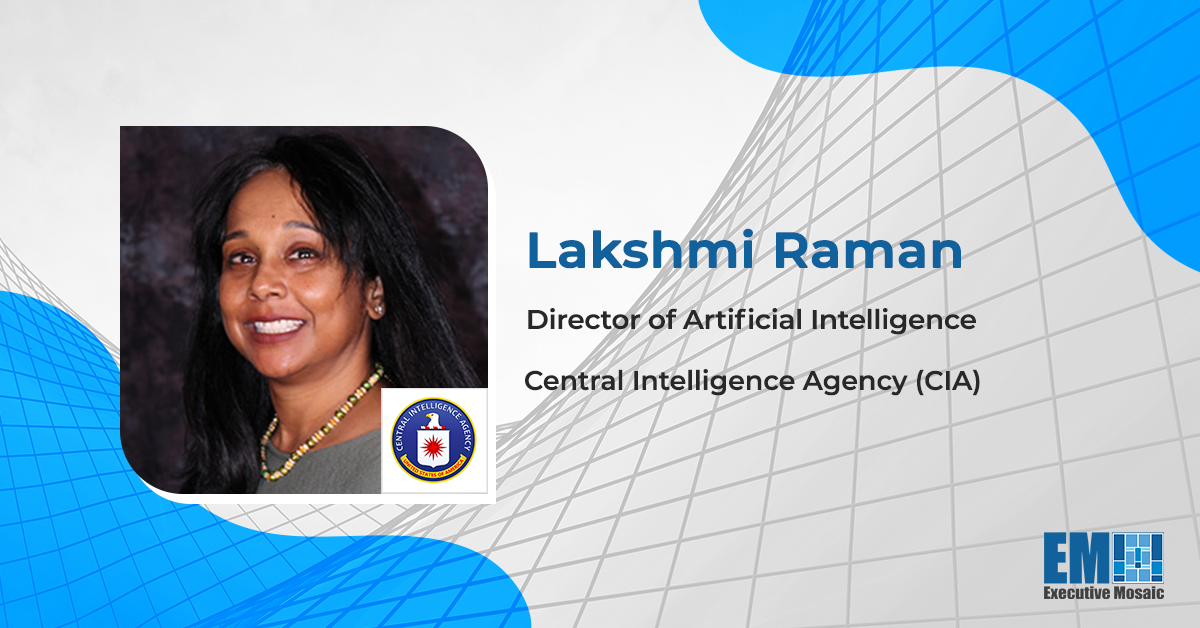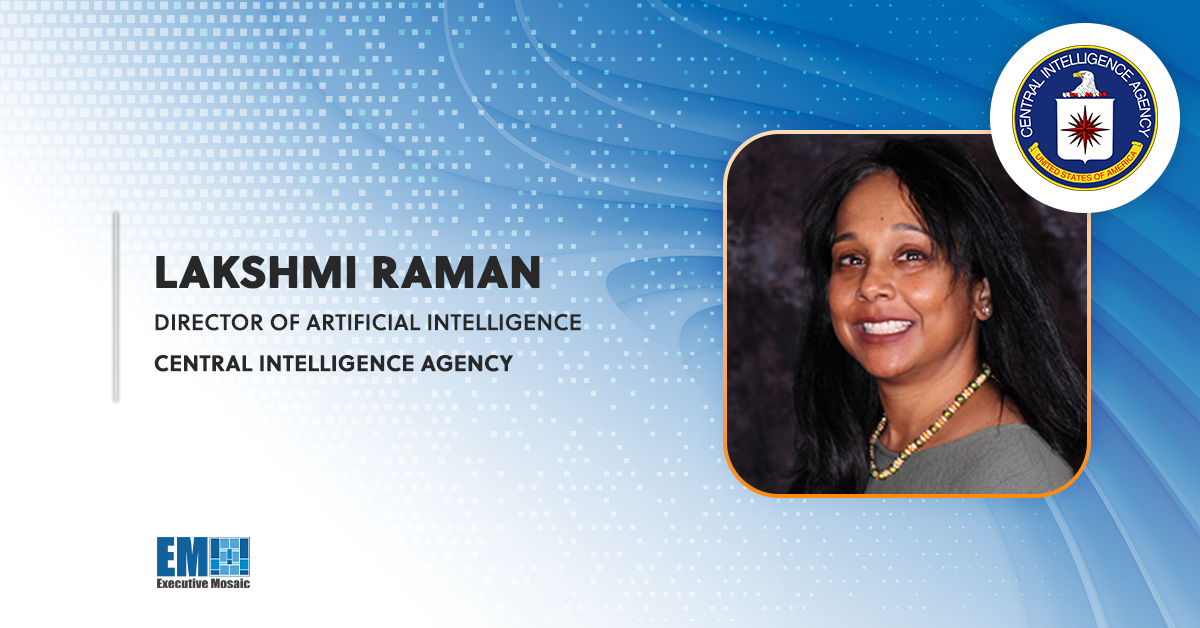The CIA has been quickly adapting its practices to the global influx of artificial intelligence implementation over the last few years. In January 2022, the director of AI position was established to concentrate autonomy modernization efforts and galvanize the agency’s capabilities in light of pressing AI-related foreign threats. The first mandate of the director was to develop and issue a three-pronged strategy based around the agency’s needs regarding AI; the strategy was cosigned by the agency’s director in July 2022.
“Our agency leadership realized how critical a coordinated effort is to the success of both our operational and analytic missions. Bringing together the pieces of the agency that need to move forward to successfully deploy large scale AI and machine learning requires the ability to influence culture, technologies and processes in order to have a major impact on our mission,” Lakshmi Raman, director of AI at the CIA, said Feb. 16 at the Potomac Officers Club’s 4th Annual AI Summit.
Raman was speaking to a crowd of industry members and government officials gathered at the Hilton McLean in Virginia. She went on to share that in putting together the strategy for the agency, she and her team were sure to build a plan that addresses targeting, collection, analysis, operations, digital innovation, science and technology and internal business processes — nearly all aspects of the CIA’s duties.
The strategic plan’s three pillars are: AI is an intelligence topic; AI is a mission enabler and AI governance and evaluation.
The first two categories specifically hone in on how AI has become a pivotal tool in the international power struggle, with all of the United States’ most concerning adversaries taking up and wielding the technology.
“AI-enhanced technology across all sectors of society brings with it great possibilities and even greater threats from our adversaries than we have known in the past,” Raman said during her AI Summit keynote. She added that threats are no longer just coming from wealthy, elite countries, but that the widened access and increasing affordability of AI technologies has resulted in a proliferation into the hands of “smaller foreign governments and non-governmental actors.” This spread necessitates the U.S. intelligence community to “move quickly in order to amplify our approach.”
However, the People’s Republic of China, Iran and Russia remain the most looming competitors, Raman says, and AI only makes them more dangerous. China is “engaged in the largest ever nuclear force expansion and arsenal diversification in history,” according to the CIA AI director, and its efforts to reach or surpass U.S. developments in space as well as its cyber aggressions are all intensified by the power of autonomous tools.
Iran has similarly dedicated itself to becoming a high-status AI superpower, based on a report Raman cites from the Research Institute of Information and Communication Technology, which predicts the nation will be among the top 10 AI producers and users in the next decade.
The third pillar of the agency’s AI strategy, governance and evaluation, centers on the risk framework associated with AI as well as an attention paid to its ethical usage.
“AI should be used in a manner consistent with respect for individual rights and liberties of individuals and use data obtained lawfully and consistent with legal obligations and policy requirements,” Raman shared, adding, “We want to make sure systems incorporate human judgment and accountability at appropriate stages to address risks across the lifecycle of AI and inform decisions appropriately.”
She additionally detailed the need to prevent “potential undesired bias” in AI systems, the crucial elements of accountability for iterations and alterations made to models and the importance of documentation “about the purpose, limitations and design outcomes of our AI models.” The CIA AI director also pointed to thorough training as carried out in the agency’s AI Learning Center as essential.
Raman closed by assuring the audience that the CIA is hard at work on addressing and incorporating AI into its daily practices, but reiterated the private sector’s obligation to partner with the government — specifically the intelligence community — to assist the country in fully reaching its goals and readying for confrontation with its competitors.
“By working together with our key partners, we will make a vital and lasting contribution to the agency’s success in being able to deliver intelligence and mission advantage against the U.S.’ most critical national security intelligence challenges,” Raman concluded.







